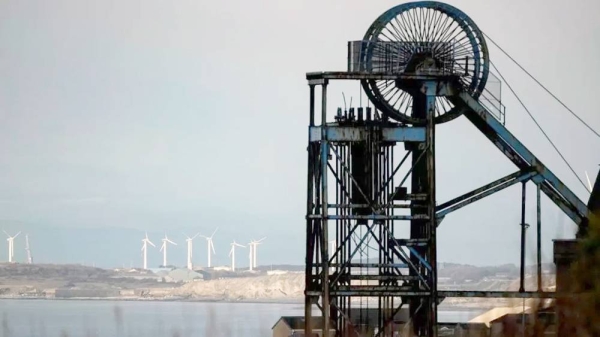
A plan to process refugees on decommissioned ferries risks being expensive, inadequate for its inhabitants, and likely to repeat the policy mistakes of the past, ministers are being warned.
A similar attempt to house prisoners in an offshore floating jail lasted less than a decade after conditions at the facility were criticised, Whitehall veterans said. They warned it proved difficult to keep supplied and too expensive to maintain in a suitable condition.
The warning comes after a series of leaks revealed the controversial ideas raised within Whitehall to discourage migrant crossings. The plans, said to be part of a blue-sky thinking exercise, included sending migrants to centres on remote islands in the south Atlantic, as well as proposals to build facilities in Moldova, Morocco and Papua New Guinea. Further ideas, now dismissed, included holding them on oil rigs, or deterring them from crossing the Channel with wave machines and blockades.
Insiders said that one plan still being pursued would see asylum seekers processed in decommissioned ferries off the UK coastline. However, experts made comparisons with HMP Weare, a floating prison moored in Portland harbour, which was opened as a temporary measure in 1997 and finally shut in 2006. Before closure, conditions on board were described as “oppressive and cramped” by the chief inspector of prisons. She said there was not enough room for exercise, concluding it was “literally and metaphorically a container”.
Sir David Normington, permanent secretary at the Home Office from 2005 to 2011, said there were similarities with the possible use of old ferries for processing migrants. “There was a prison ship moored off Portland in 2006 to help with the overcrowding in prisons. It was not very suitable, very difficult to provision. It was expensive. Those inside were kept in very cramped conditions. Staff didn’t like it. It could never be more than a very short-term solution.
“The idea of finding somewhere in the UK where they can go to be processed is not a silly idea – indeed it is already happening. But I don’t see why putting them on a ship off the coast helps you. While they’re on British territory, whether they’re on the sea or on the land, you have an obligation under domestic and international law to look after them and consider their claims lawfully and safely.”
Normington also said that sending migrants overseas was a “non-starter” because it would be hard to secure agreement from the recipient territory, while it was legally difficult to move migrants. He added: “These are human beings. They must be properly and lawfully treated. They must be kept safe. Our national sense of decency and our international reputation should mean fulfilling our obligations under the UN conventions on refugees.”
The measures have caused alarm among some Whitehall figures. The current Home Office permanent secretary Matthew Rycroft has said “everything is on the table” for consideration, though it is understood most of the ideas to surface this week have already been discounted.
However, the leaks have not deterred ministers from tackling the issue of migrant crossings. Dominic Cummings, the prime minister’s senior adviser, is said to be frustrated with the repeated tactic of handing more resources to France each year to improve security at the border – a strategy that Downing Street believes has failed in the light of increasing numbers of crossings.
The UK is dealing with record levels of arrivals across the Channel, with nearly 7,000 people landing in the UK by small boats this year. However, Sir Peter Ricketts, the UK’s former ambassador to France, said asylum seeker numbers remained low compared with other European countries and has urged ministers to continue working with France and others.
“I don’t think any of these schemes are going to be an effective deterrent against people who are already desperate, who have convinced themselves that getting to the UK is the solution to their problem,” he said. “The only way, I’m afraid, is to go on working with the French. This is all being done through traffickers who are making a large amount of money. I think we’ve got to go on working with the French and the Belgians, and others, to shut down these trafficking routes.”
However, Priti Patel, the home secretary, will tell the virtual Tory party conference on Sunday that she is determined to overhaul a system she believes is “fundamentally broken”. She will compare someone coming to the UK legally and claiming asylum, but getting stuck for months in the system, to someone who arrives on a small boat, having passed through numerous safe countries.
“A fair asylum system should provide safe haven to those fleeing persecution, oppression or tyranny,” she will say. “But ours doesn’t. Because our asylum system is fundamentally broken. And we have a responsibility to act.
“I will introduce a new system that is firm and fair. Fair and compassionate towards those who need our help. Fair by welcoming people through safe and legal routes. But firm because we will stop the abuse of the broken system. Firm because we will stop those who come here illegally making endless legal claims to remain. And firm because we will expedite the removal of those who have no claim for protection.”












